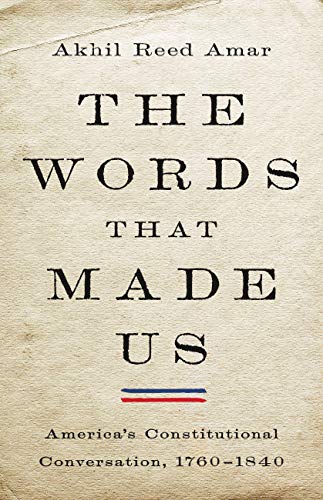14 US Founding History Books That Shape Expert Understanding
Recommended by Cass Sunstein, Elon Musk, and Doris Kearns Goodwin, these books offer unmatched insights into US founding history.


What if the story of America's founding is far richer and more complex than the textbooks suggest? Delving into the US Founding History reveals a tapestry of debates, compromises, and characters that shaped a nation still wrestling with its roots. Today, understanding these dynamics isn't just about the past—it's about grasping the foundations of the democracy you live in.
Leading voices like Cass Sunstein, a Harvard Law professor and former White House official, emphasize the intricate political maneuvers behind the Constitution, while Elon Musk, known for his innovation leadership, finds resonance in the pragmatism of founding figures like Benjamin Franklin. Pulitzer Prize-winning historian Doris Kearns Goodwin brings the human drama of revolutionaries vividly to life, enriching your perspective on these transformative years.
While these expert-curated books provide proven frameworks and nuanced historical analysis, you might find even greater value in creating a personalized US Founding History book tailored to your background, interests, and goals. This approach helps you build on expert insights with a focus uniquely yours, accelerating your learning journey.
Recommended by Annette Gordonreed
Professor of Law and History, Harvard; Pulitzer Prize Winner
“@CharlesPPierce No. Just a regular class. Interesting book.” (from X)
What if everything you knew about the American Constitution’s early years was incomplete? Akhil Reed Amar, a Sterling Professor of Law and Political Science at Yale, argues that the Constitution’s story extends far beyond 1788 into a vibrant, ongoing debate shaping the nation’s identity. You’ll explore how issues like westward expansion, slavery, Native American rights, and judicial power were contested in the decades after ratification. Chapters dive into the evolving constitutional dialogue, revealing the dynamic process of interpretation and the voices that influenced it. This book is ideal if you want a deep understanding of the Constitution’s living history and its lasting impact on America.
Recommended by Publisher's Weekly
“The colonists didn’t describe their war for independence as the American Revolution, Pulitzer winner Ellis (American Dialogue) points out in the preface to this richly detailed, multivoiced history. The term they used was “The Cause”―“a conveniently ambiguous label that provided a verbal canopy under which a diverse variety of political and regional persuasions could coexist.” Ellis skillfully charts those divergent interests.... Profiles of lesser-known figures including Continental Army soldier Joseph Plumb Martin and Mohawk chief Joseph Brant add depth and nuance to a familiar story. This expert account highlights the “improvisational” nature of America’s founding.” (from Amazon)
Joseph J. Ellis Ph.D.(you?)·
Joseph J. Ellis Ph.D.(you?)·
Joseph J. Ellis, a Pulitzer Prize-winning historian, brings decades of deep engagement with America's founding to this vivid retelling of the Revolutionary era. He explores the American Revolution not as a unified uprising but as a complex "Cause" encompassing conflicting ideals and diverse participants, from Mohawk chief Joseph Brant to George Washington's enslaved servant. Through detailed portraits and fresh sources, you gain insight into the political, military, and social upheavals that shaped early America, including the unresolved legacies of slavery and indigenous displacement. This book suits anyone seeking a nuanced understanding of the revolution’s contradictions and its enduring impact on the nation’s identity.
This tailored book explores your unique interests in US Founding History by delivering a personalized narrative that matches your background and focuses on the key events, figures, and ideas shaping America’s origins. It examines the political debates, revolutionary dynamics, constitutional developments, and social currents that defined the era, offering a custom pathway through complex historical content. By concentrating on your specific goals, this book reveals the intricate tapestry of founding moments, from key battles and leadership biographies to constitutional controversies and ideological foundations. Its personalized approach ensures you engage deeply with the subject matter, making the learning experience both enriching and relevant to your own perspective.
Recommended by Doris Kearns Goodwin
Presidential historian and Pulitzer Prize winner
“History as it should be written -- with illuminating insight into character, a sweeping narration of events, and a splendid eye for detail.” (from Amazon)
A. J. Langguth(you?)·
A. J. Langguth(you?)·
A. J. Langguth’s decades of experience as a journalist and historian shine through in this detailed narrative of the American Revolution’s key figures. You’ll explore vivid portraits of George Washington, John Adams, Benjamin Franklin, and others, gaining insight into their motivations and the complex drama that led to independence. The book’s strength lies in its storytelling approach, weaving character studies with historical events that reveal the human side of revolution. If you're interested in understanding the personalities behind the founding of the United States and the nuanced interplay of their actions, this book offers a richly textured perspective.
Recommended by The Christian Science Monitor
“Full of deep research and dramatic character portraits, a crowning achievement from one of the best historians of the period.” (from Amazon)
What if everything you thought you knew about the Revolutionary War's final years was reconsidered? John Ferling, a seasoned historian and professor emeritus, unpacks the crucial period from 1778 to 1781, revealing how American independence teetered on a knife's edge. Through detailed accounts of military strategies, economic challenges, and leadership decisions, especially the southern campaign and Yorktown victory, you gain insight into the complex dynamics that shaped the outcome. The book suits anyone eager to understand the nuanced intersection of military history and political strategy during America's formative struggle.
Recommended by George Washington
First President of the United States
“If in the opinion of the People, the distribution or modification of the Constitutional powers be in any particular wrong, let it be corrected by an amendment in the way which the Constitution designates. But let there be no change by usurpation; for though this, in one instance, may be the instrument of good, it is the customary weapon by which free governments are destroyed.” (from Amazon)
Delegates of The Constitutional Convention(you?)·
Delegates of The Constitutional Convention(you?)·
Drawing from the firsthand insights of the Delegates of the Constitutional Convention, this compact edition presents the foundational texts that shaped American governance. You’ll explore the Constitution’s detailed articulation of federal powers and citizen rights alongside the Declaration of Independence’s philosophical underpinnings. The book benefits anyone seeking direct access to these documents without commentary, including students, legal professionals, and civic participants aiming to ground their understanding in original sources. For example, it clearly outlines the three branches of government and the Bill of Rights, making it a useful reference for understanding the framework that guides current political debates.
This tailored book explores the pivotal events and figures of the US Founding Revolution, offering a personalized pathway through complex historical narratives. It examines key revolutionary moments, political debates, and influential personalities with a focus that matches your background and learning goals. By blending expert knowledge with your specific interests, this book reveals connections and nuances that might be overlooked in broader works. The content is carefully crafted to help you grasp foundational themes rapidly, making revolutionary history accessible and engaging. This personalized approach ensures the material resonates with your pace and perspective, deepening your understanding of America's transformation during its most critical era.
Recommended by George Washington
First US President and Founding Father
“The Constitution is the guide which I will never abandon.” (from Amazon)
The Constitution and the Declaration of Independence
The Constitution of the United States of America
Paul B Skousen, Dan Clark, Tim McConnehey(you?)·
Paul B Skousen, Dan Clark, Tim McConnehey(you?)·
When Paul B. Skousen brings his expertise in constitutional law and national security to this edition, you gain more than just text — you tap into the deep roots of America’s founding principles. Skousen’s background, including work in the White House Situation Room and CIA intelligence, informs a nuanced exploration of the Constitution and Declaration of Independence, highlighting the original intent behind each clause. You’ll find clear commentary on individual liberty, government structure, and constitutional amendments, with notable insights on the Founding Fathers’ visions. This book suits anyone eager to understand not only the documents but the living principles shaping American governance today.
Recommended by Jon Meacham
Author of The Soul of America and Destiny and Power
“Americans tend to forget that we have always been at war with one another—even in the beginning. In this splendid new book, H. W. Brands tells the story of the American Revolution as it really unfolded—as a civil war between colonial patriots and those loyal to the British Crown and Parliament. Division, Brands reminds us, is as American as unity.” (from Amazon)
H. W. Brands, a historian with the Jack S. Blanton Sr. Chair in History at the University of Texas at Austin, takes a fresh look at the American Revolution by focusing on the internal conflict between Patriots and Loyalists. You’ll gain insight into the social and personal upheavals that turned neighbors and even family members against each other, challenging the usual heroic narrative. The book details figures like George Washington and Benjamin Franklin as reluctant rebels, while exploring lesser-known Loyalist perspectives, including those of Native Americans and enslaved people. If you want to understand the Revolution as a complex civil war rather than a simple fight for independence, this narrative will reshape your perspective.
Recommended by Cass Sunstein
Harvard professor, White House official
“Magisterial... The Framers' Coup might well be the best book ever written on the founders and their handiwork. With impressive, even loving detail, and mostly emphasizing historical facts rather than his own opinions, Klarman conjures up the framers' whole world... riveting.” (from Amazon)
Michael J. Klarman(you?)·
Michael J. Klarman(you?)·
Michael J. Klarman, a distinguished Harvard Law professor and Bancroft Prize-winning historian, challenges the traditional view of the Constitution's creation in this detailed narrative. You’ll uncover how clashing interests—not just lofty ideals—shaped the drafting and ratification, with vivid accounts like Gunning Bedford’s threats and Hamilton’s monarchist leanings bringing the tense atmosphere to life. This book unpacks the complex power struggles and compromises behind the Constitution, revealing why it almost failed and how it was deliberately crafted to limit democratic influence. If you want a deep dive into the political realities behind America's founding document, this book offers a rich, nuanced perspective.
Recommended by Pat Gelsinger
CEO at Intel, engineering pioneer
“On this Presidents Day I recommend checking out the book, "Washington: A Life" by Ron Chernow (one of my favorite biographers).” (from X)
Ron Chernow(you?)·
Ron Chernow(you?)·
Ron Chernow, a Pulitzer Prize-winning biographer, crafted this expansive portrait of George Washington out of his deep appreciation for illuminating complex historical figures. You gain an intimate look beyond Washington's stoic public image, exploring his personal struggles, relationships, and leadership style, such as his nuanced marriage to Martha and his role in shaping the presidency. The book guides you through pivotal moments like the Constitutional Convention and the Revolutionary War with detailed narratives and sharp analysis. If you want to understand the man behind the legend and the political genius who helped found America, this book offers a rich, layered perspective that balances Washington's humanity with his monumental impact.
Recommended by Elon Musk
CEO of SpaceX, Tesla and Neuralink
Walter Isaacson(you?)·
Walter Isaacson(you?)·
Drawing from his extensive experience as a historian and biographer, Walter Isaacson delves into the multifaceted life of Benjamin Franklin, revealing the man behind the myth. You gain insights into Franklin's roles as a writer, inventor, diplomat, and political strategist, with chapters highlighting his influence on the Declaration of Independence and the Constitution. This book suits anyone eager to understand the complexities of early American leadership and the personal qualities that shaped the nation’s identity. Isaacson’s narrative captures both Franklin's wit and pragmatism, making historical events relatable and impactful for your grasp of US founding principles.
Recommended by Robin Sharma
Writer and speaker, author of The Monk Who Sold His Ferrari
General Press(you?)·
General Press(you?)·
Unlike many history books that rely heavily on third-person accounts, this autobiography delivers Benjamin Franklin's life story in his own lively voice, offering you an intimate look at his multifaceted talents and relentless self-improvement. You gain insight into his early years as a self-taught printer, his experiments as a scientist, and his diplomatic finesse that shaped American independence. Franklin's narrative, originally penned to guide his son, reveals practical wisdom on personal growth, civic responsibility, and innovation, especially in chapters detailing his inventions and political strategies. If you're drawn to firsthand perspectives on the founding era and the mind behind pivotal American developments, this book provides a unique window into one of the nation's most versatile founders.
Recommended by Sam Altman
CEO of OpenAI, Former Y Combinator CEO
James Madison, Edward J. Larson, Michael P. Winship(you?)
James Madison, Edward J. Larson, Michael P. Winship(you?)
After analyzing the detailed notes James Madison took during the 1787 Constitutional Convention, historians Edward J. Larson and Michael P. Winship reveal the complex negotiations that shaped the U.S. Constitution. You gain insight into the political tensions between states, the debates over federal authority, and the personal dynamics among delegates, all presented with modern clarity and helpful context on each participant. This book is particularly suited to those who want a close, narrative-driven examination of the Convention’s proceedings rather than a broad overview of early American history. If you're aiming to understand the Constitution's origins through the eyes of its key architect, this will deepen your appreciation for the document’s delicate balance of power.
Recommended by Annette Gordonreed
Harvard Law and History Professor, Pulitzer Winner
“Rob has a new book, “Thirteen Clocks: How Race United the Colonies and Made the Declaration of Independence”, that reworks The Common Cause on a smaller scale. Equally brilliant.” (from X)
Robert G Parkinson(you?)·
After analyzing colonial news and propaganda, Robert G. Parkinson found that racial fear, rather than pure ideological commitment to liberty, played a pivotal role in uniting the American colonies. Parkinson, an associate history professor with a focus on early America and race, traces how patriot leaders exploited anxieties about Native Americans, enslaved people, and foreign mercenaries to galvanize support for independence. You’ll gain a nuanced understanding of the complex social dynamics behind the Declaration, including how racial narratives were weaponized to forge political unity. This book is especially insightful if you want to explore the less-discussed, uncomfortable truths behind the founding of the United States.
Recommended by Jack Murphy
Podcast host; Lincoln Fellow at Claremont Institute
“Thomas West author of this amazing book, is confirmed for JML in December. I’m honored and excited!” (from X)
Thomas G. West(you?)·
Thomas G. West, holding an endowed professorship at Hillsdale College and specializing in American political thought, challenges prevailing views by centering natural rights as the core lens of the American Founders' political theory. You’ll explore how foundational ideas like natural law, social compact, and consent form the backbone of early American governance, with in-depth discussions on how republican character formation and liberal economic policies coexist rather than conflict. The book also places the Founders' embrace of common law and Protestant influences in context, giving you a richer understanding of their multifaceted political philosophy. It’s ideal if you want to grasp the moral and philosophical roots behind America’s founding documents rather than a surface historical account.
Conclusion
These 14 books collectively illuminate the US founding era from multiple angles—constitutional debates, revolutionary conflicts, and the lives of towering figures. They reveal a founding marked by political tension, social complexity, and enduring philosophical questions.
If you seek to grasp the Constitution's legal foundations, start with "The Words That Made Us" and "The Framers' Coup." For vivid portraits of leadership, "Washington" and "Benjamin Franklin" offer unparalleled insights. Those interested in the revolution's social upheavals will find "Our First Civil War" and "Thirteen Clocks" eye-opening. Combining military history with political strategy, "Winning Independence" completes this rich tapestry.
Alternatively, you can create a personalized US Founding History book to bridge general principles with your unique questions. These books can help you accelerate your learning journey and deepen your understanding of America’s complex origins.
Frequently Asked Questions
I'm overwhelmed by choice – which book should I start with?
Start with "The Words That Made Us" for a broad constitutional overview, or "Patriots" if you're drawn to the personalities behind the revolution. Both provide strong foundations for further reading.
Are these books too advanced for someone new to US Founding History?
Many books, like "Benjamin Franklin" and "Winning Independence," are accessible and engaging for newcomers while offering depth for experienced readers.
What's the best order to read these books?
Begin with broad narratives such as "The Cause" and "Our First Civil War," then explore focused works like "The Framers' Coup" and biographies for deeper context.
Do I really need to read all of these, or can I just pick one?
You can pick based on interest—biographies, military history, or constitutional analysis. Each offers a unique lens, but together they enrich your understanding.
What makes these books different from others on US Founding History?
These selections are recommended by leaders like Cass Sunstein and Elon Musk, reflecting a blend of scholarly rigor, fresh perspectives, and engaging storytelling.
Can personalized US Founding History books help me focus my learning?
Yes! While these expert books provide broad knowledge, personalized books tailor insights to your interests and goals, helping you apply history effectively. Try creating your custom book.
Help fellow book lovers discover great books, share this curated list with others!
Related Articles You May Like
Explore more curated book recommendations













